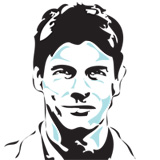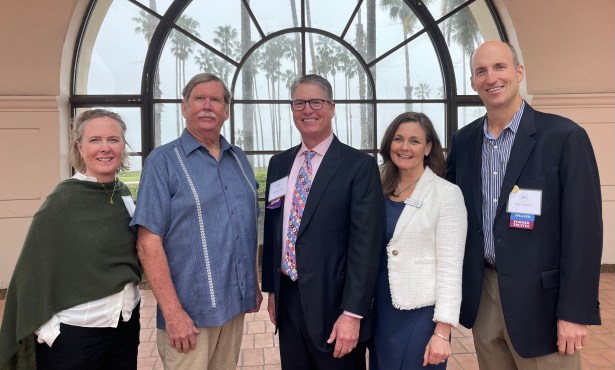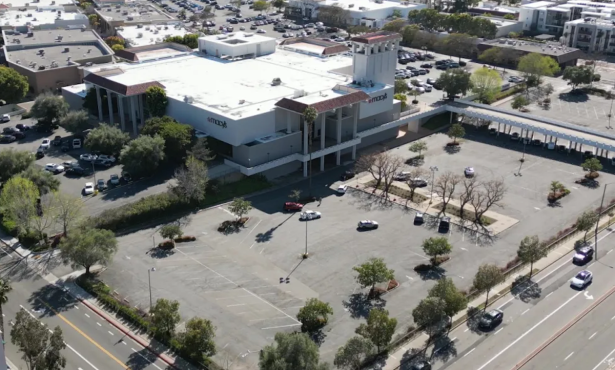A Mini-Discourse on Spiritual Method
Which Way to Truth?
We don’t know much. That’s the one thing we do know as we survey this universe of ours and the human milieu that is such a small part of it.
But what of spirit, the soul, the psyche, human well-being? What do we know about that? Again: not much. So here we find a unifying factor between science and spirit: a common ignorance about ultimate answers. This suggests, perhaps, a common method for learning, first, the more complete contours of our ignorance and, second, pursuing a productive path to reduce our ignorance.
Descartes, one of the founders of modern science and philosophy, made his mark in part through his approach to knowledge in his Discourse on Method (full name Discourse on the Method of Rightly Conducting One’s Reason and of Seeking Truth in the Sciences). In his Discourse, he introduced his most famous statement: I think, therefore I am. What he meant with this foundation for his intellectual edifice was that he knew nothing with any certainty except this one thing: There is thinking here, and we can conclude from the very act of thinking that there is a thinker.

Descartes’s first step was the ultimate in intellectual modesty. It is ironic, therefore, that he immediately deduced as his second step, away from the certainty of his knowledge of self, that God must also exist. I won’t go into the details here, but will say only that I found his logic very dubious in making this secondary conclusion. (I have written on my views of the Ultimate here and here).
We may still emulate Descartes’s humility, however, for spiritual method, as well as for scientific method. Science today, particularly in its more popularized forms, all too often states as fact things that are more correctly labeled conjecture or inference. Karl Popper correctly noted that all of science is a series of conjectures and refutations. There is no proof. Gregory Bateson made it even more clear: “Science probes, it does not prove.”
In terms of spiritual method, the historical Buddha, Siddhartha Gautama, stated in his final sermon that we should all be a light unto ourselves. That is, we should always forge our own path and not follow any particular set of views on authority or faith alone. We should test statements, test methods, and find our own path.
Based on his own teachings, if the Buddha were alive today, it is highly unlikely that he would wholeheartedly embrace Buddhism. Why? Because human knowledge has improved since the Buddha’s time, and because we have also become more humble in our approach to knowledge.
Our worldly knowledge has undeniably improved vastly since the time of the Buddha. Modern science has only been around for a few hundred years, kicking off a vast accretion of empirical knowledge that only began in earnest more than two thousand years after Buddha died. Our knowledge of the cosmos, while still extremely limited, is vastly different than it was even a hundred years ago. Until about 80 years ago we didn’t even know there were other galaxies in our universe. We now know that there are billions of other galaxies, mini universes in their own right, floating alongside our own Milky Way, some near but most incredibly far from us. Medical knowledge has vastly improved, as has average human life span. More generally, technology is the real proof in the pudding for the improvement of human knowledge. As one example, we now have access to the sum of knowledge of entire civilizations in the palm of our hand. Literally.
If our knowledge of the world around us has grown so much, isn’t it reasonable to think our knowledge of the realm of spirit has also grown?
Evolutionary Spirituality
There is an interesting debate between those traditions that believe final and complete knowledge has already been achieved by an individual or individuals, and those who believe that knowledge is always improving, evolving, accreting. For the first group, it is our task as spiritual seekers today to follow those teachers (whatever tradition it is that resonates) and to emulate their example in order to achieve their level of knowledge and spiritual attainment. There is no going beyond; there is no improving our collective knowledge of spiritual matters if all has been previously revealed by Christ, Muhammad, Buddha, as the case may be.
For the second group, all is process, improvement, including our knowledge of spirit. There is no endpoint or final knowledge, and we can all, each of us, advance our collective knowledge and attainment. Empirically, we can see that the second group is probably closer to the truth.
All spiritual traditions evolve, through insight, dialogue, schisms, conflicts, and so on. Looking first to our own history in the West, the Christian movement today is generally acknowledged to have four or five major denominations: Catholicism, Protestantism, Eastern Orthodox, Oriental Orthodox and Anglican. And there are dozens of sub-denominations within these major schools. These numerous denominations exist because each generation produced thinkers who didn’t agree entirely with previous thinkers — and, accordingly, they created their own denominations with the support of those they inspired. This process continues today, with Mormonism, a very recent branch of Christianity, gaining influence.
In the Eastern traditions, we see very similar evolutionary changes. Taking Buddhism as our example, we have the following major denominations: Theravada (Hinayana), Mahayana, and Tibetan Buddhism. Tibetan Buddhism is, however, often considered a Mahayana denomination even though it has become so prominent it’s often given its own category. There are dozens of other denominations in the Mahayana grouping, including Zen, Pure Land, Nichiren, Hua Yen, Tendai, and others. Again, these different schools of thought arose because new thinkers were dissatisfied at some level with the teachings handed down to them by previous thinkers.
There is a fairly new term for the idea that there is no endpoint or final knowledge: “evolutionary spirituality.” It is not just that this view of spirituality attempts to take evolutionary theory’s insights into account (in the Darwinian sense); rather, evolutionary spirituality recognizes that all is process, all is change, all things are evolving — including our knowledge of the universe and ourselves. If all is process, the future is unknown and necessarily so.
Carter Phipps’s Evolutionaries: Unlocking the Spiritual and Cultural Potential of Science’s Greatest Idea is a wonderful book on this movement. Michael Murphy, founder of the Esalen Institute in Big Sur, has coined the term “evolutionary panentheism” for the modern movement that views all things as process and sees the universe we live in as an emanation of God or ground of being. (The link contains an excellent short article summarizing Murphy’s ideas.) This phrase is a mouthful, but it’s a great title for what is a comprehensive view of the universe and our place in it, shaped by many great thinkers, old and new, including Hegel, Schelling, Sri Aurobindo, Henry James, and Alfred North Whitehead.
So What’s the Big Deal?
The difference in these approaches comes down to one’s views of omniscience or at least the potential for omniscience. Can we or any being ever know everything? And what does it mean to know everything? This is a tough question with no certain answers. However, it seems to me that there are logical limits that transcend any current empirical limitations to what can be known. Is the universe deterministic or not? If it is, we may be able to know the future with certainty, at least in theory —and the past, as an extrapolation from present conditions. (Let’s set aside for now discussions about deterministic chaos.) If the universe is not deterministic, however, we can’t know the future with any certainty.
A big problem with the idea of a deterministic universe is that this view eliminates the possibility of free will. This is the case because if the future is entirely determined from present conditions and the laws of physics, and was equally determined from the Big Bang or whatever starting point we choose, then there is no room for human agency, for actions that aren’t determined by prior forces. There is no free will in a determined universe — despite the best efforts of compatibilists old and new.
If we, instead, recognize our immediate and deep-seated intuitions about the validity of our own free will, our own ability to make real decisions, we must reject the idea of a deterministic universe. We must recognize that the universe is wide open and that time, and the universe itself, is a process of creative unfolding. And we are part of that creative unfolding.
This second view is not just wishful thinking. The essay just linked to describes the work of Nobel prize–winning physicist Ilya Prigogine’s efforts to show that the universe is indeterministic and ultimately creative and free. Similarly, Alfred North Whitehead and other process thinkers have suggested that free will, agency, is built into the fabric of the universe at every level in some form. It is highly rudimentary in the vast majority of the universe, but where matter complexifies into biological forms, so free will and consciousness complexify.
The friendly disagreement between the evolutionary views of spirituality and the non-evolutionary views comes down to different models of reality. There are an infinite number of possible models of reality, but there seem to be two particular (simple) models or metaphors of reality that are relevant to the themes I’ve raised in this essay: Is the universe a perpetual cycle of suffering/dissatisfaction, or is the universe an upward spiral, always improving, creative and free?
Buddhism, in particular, has sometimes been criticized for its seemingly gloomy view of the universe. “Life is suffering” is often presented as the first Noble Truth, a foundation of almost all Buddhist schools of thought. Some modern translations prefer to translate the Pali word (the Buddha’s tongue) dukkha as “dissatisfaction” or “frustration” rather than “suffering.” (See my recent column endorsing key Buddhist ideas but suggesting ways in which Buddhism could evolve further).
Indeed, much of life is frustrating. And yet, in our modern era, it seems that many people, in ever increasing numbers, can reasonably expect to live a life that is generally satisfying, despite frustrations of various types. And we are on a civilizational trajectory (barring catastrophic events) to bring the majority of humanity to this new position over the coming decades and centuries.
However, even in this brighter future where the basic needs of all, or most of, humanity are met, human life will inevitably involve dissatisfaction and frustration, and suffering too. We can’t yet avoid illness, pain, or death. And even if we could conceivably avoid these inevitable features of life in the future, due to the marvels of technology, we will always suffer in various ways due to jealousy, rivalry, bias, unfairness, heartbreak, and so on.
Maybe, just maybe, we will, as we progress in both our scientific and our spiritual knowledge, achieve societies in which people not only have their physical needs met without great striving but also reach a state where we can en masse truly focus on unleashing our own creativity, our own search for beauty in all aspects of life. If this kind of future is possible, the prevailing Buddhist and Christian notion of escaping this human level of existence becomes far less pressing and a new objective becomes more relevant: a co-evolution of higher spirituality in our present realm. While we can recognize, as logically possible, the potential for different realms of existence (Nirvana in Buddhism, heaven in Christianity, etc.), the yearning for these other realms becomes less important. And we can focus on creating heaven on earth, nirvana in our time.
But I am personally torn on these ideas. We can never know, under the principles I have suggested here, what is the true shape of the universe, the fate of the universe, our own fate. So the debate will surely go on.
What Is the Shape of the Universe?
A final thought: It does seem that the Eastern spiritual tradition lacks any substantial thinking on how things came to be as they are in our universe, as is the case too with the Western Christian tradition, which is in most of its forms highly opposed to evolutionary thinking. There is a general attitude in both traditions toward trying to understand how things are, and to live our lives accordingly, rather than to understand how things came to be. The difference is the same as the difference between viewing a snapshot versus a movie. Which is more revealing?
I would suggest that understanding how things came to be as they are now is a major step in living a better life and achieving more complete spiritual understanding. Just as a doctor wouldn’t dream of prescribing medication without at least trying to understand how the patient became ill, we should, as spiritual seekers, do our best to understand how we came to be in our current condition — and this requires that we also do our best to understand how the universe as a whole came to be, because we are an inextricable part of the universe.
In the last analysis, we may certainly pursue a productive spiritual path, whatever path that entails, without a full understanding of how we came to be in our current predicament. Indeed, a key point of my essay is that we will never have such a complete understanding. But, by the same token, we should always continue our search for better answers because any spiritual path we follow will have an implicit model of reality, of the universe — and how our universe came to be — within it. If the model of the universe implicit in our preferred spiritual practice is lacking, it may have negative repercussions on our spiritual practice.
Tam Hunt is trained as a lawyer and biologist and has studied philosophy for decades. He is a renewable energy consultant and lawyer by day, and avid reader by night. He also teaches part-time at UCSB’s Bren School of Environmental Science & Management. He lives in Santa Barbara, plays tennis, and strums a guitar occasionally.



